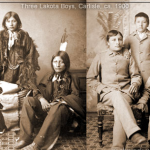Years ago, when I was in a Cooperation Circle of the United Religions Initiative, there was an interfaith-y poster of how religions across the spectrum of spirituality had their own version of The Golden Rule–Do Unto Others As You Would Have Done Unto You. There were very similar mottos from lots of different creeds but my spiritual tradition doesn’t have a thing like that, not really. We harken back to the ancient laws of hospitality and that could sort of pass.
But not really.
We spend so much time in our interfaith and multi-faith worlds discussing what we have in common and that’s not a bad thing. But I have come to realize that it’s the differences that are the most telling, as well as the richest areas to explore.
Take peace, for instance. We are always doing some kind of peace-focused work–conferences and workshops and prayer gatherings. There’s even an International Day of Peace–that falls on one of our holy days, I might add–into which I’ve been roped on more than one occasion. The only problem is–I don’t work for peace and never have. My tradition teaches me to strive always for justice and that peace is really a by-product of a just world. But when I explain it that way, some folks are slightly put off. Several times, ironically enough, people have angrily demanded to know what I have against peace. Nothing, actually. But my work is about justice and that is often my prayer.
A discussion of those particular differences is wonderfully vibrant interfaith ground. Much as a discussion of the nature of the Divines would be. Because there are things we really don’t “get” about each other. We make assumptions that harken back to those Weekly Reader stories from the 1960s about how Christmas is celebrated in different lands–without acknowledging that Christmas might not even be an important holy day in most of them.
I confess to grappling with the concept of “grace” for more years than I care to admit. I was not brought up Christian–I was “unchurched” as they say in the South. So there are basic things about the Christians’ relationship to the Divines that I don’t ken. One of them was and is the concept of grace. It seems a simple enough word but I mostly associated it with a way of moving in the world, both physically and emotionally, that gave a certain amount of ease to those we encounter.
That wasn’t really it. I was genuinely puzzled and my dear Christian friends did their best to enlighten me. It wasn’t so long ago that the concept finally clicked for me and then I realized why I didn’t get it.
Grace is when the Divines give you something wonderful, something you don’t deserve, something you didn’t merit or work for. It’s a super-wonderful thing the Divines do and people who are touched by grace are really happy and humbled by such gifts.
(I’m sure some of you will have a more thorough reading on the concept, but this was how it was explained to me in a way I finally got.)
This goes back to a wildly different view of the nature of the Divines and of Their interactions with us humans. Because in my world view, the Divines are always giving us challenges to overcome and the wisdom to understand people and situations. They work with us on big projects and sometimes hold us when we need extra support.
But there isn’t a sense that we don’t deserve that. There is always gratitude and respect and love, for sure. Or there should be. And we are encouraged to be brave and strong and kind to those who are not as brave and strong as we.
But our relationship is different, I think. We don’t think of ourselves as essentially corrupt or undeserving. We certainly don’t have the same concept of sin and guilt. And that’s why I didn’t understand the idea of “grace.” And am a little leery of it, truth be told. You may not even want to hear why I think forgiveness is unimportant.
What else do we not know we don’t know about each other? In our rush to find the commonalities, how are we shortchanging our own spiritual traditions as well as missing opportunities to genuinely understand a completely different point of view?
















